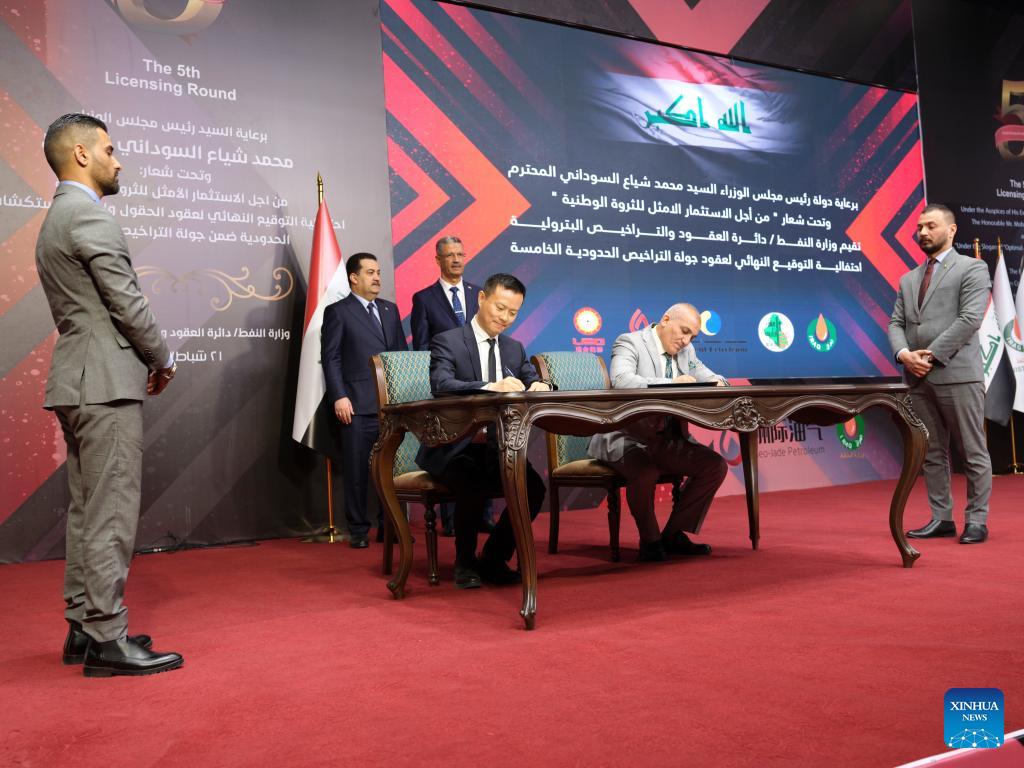Chinese BRI aids in rebuilding Iraq, according to Iraqi academics
According to Aqil Hamdan, a lecturer at al-Mustansiriyah University in Baghdad, China might be a key player in Iraq’s post-war rebuilding, notably via the Belt and Road Initiative (BRI) that China has suggested.
The professor said that Iraq’s infrastructure was in disrepair as a result of years of conflict, economic hardship, and sanctions, and that “Chinese companies can meet Iraq’s urgent need for foreign investment, technology, and equipment” to revive its economy.
Hamdan said, “We need the BRI, for it is a project that builds roads and bridges and promotes development in industrial and medical areas, as well as in residential cities,” pointing out that whereas Western nations had unjustly invaded and occupied his nation, China offered a solution for prosperity.
Hamdan emphasized that China establishes ties with other nations based on “mutual benefit and common destiny,” stressing that China “does not occupy any country.”
Due to its strategic position along the old Silk Road, Hamdan referred to Iraq as “a natural partner of China” and said that collaboration between the two countries may “promote the connectivity of Asian, European, and African continents.”
Hamdan is also an active participant in the local non-governmental group “The Popular Movement of the Belt and Road Initiative and the Port of al-Faw,” which promotes Chinese investment in the nation’s al-Faw Great Port project.
Members of the group, which operates in 15 of Iraq’s 18 provinces, include former government officials, academics, businesspeople, and employees.
Another group member, Anwar al-Bahadli, who had spent four years working at the Iraqi embassy in Beijing, called China’s accomplishments since entering the World Trade group in 2001 “qualitative breakthroughs.”
The best way for Iraq to address its own difficulties, he argued, is to board the “Chinese train of growth.”
The BRI was initially proposed in 2013, with the goal of establishing land and marine networks to link Asia with Africa and Europe in order to enhance regional integration, boost commerce, and promote economic development.
With over 150 nations and 30 international organizations signing cooperation papers within the BRI framework, the project has grown into a beacon of economic progress ten years later.
The Iraqi-Chinese Friendship Association’s president, Haider al-Rubaie, praised the BRI as “a joint development initiative that helps the world to achieve justice, peace, and security.”
He pointed out that more and more Chinese businesspeople are coming to invest in Iraq, and that bilateral cooperation is likely to bear greater rewards in the future.
Al-Rubaie told Xinhua, “We (the association) are busier because of the tighter cooperation between the two nations.
He emphasized that Western nations’ misinformation and hostile BRI policies should not be allowed to harm the relationship and cooperation between China and Iraq.
Al-Rubaie praised China for its role in the BRI, calling it a global development initiative that “helps the world to be one home, one village, so that there is no difference between Iraq and China, for we are all friends and brothers.”













